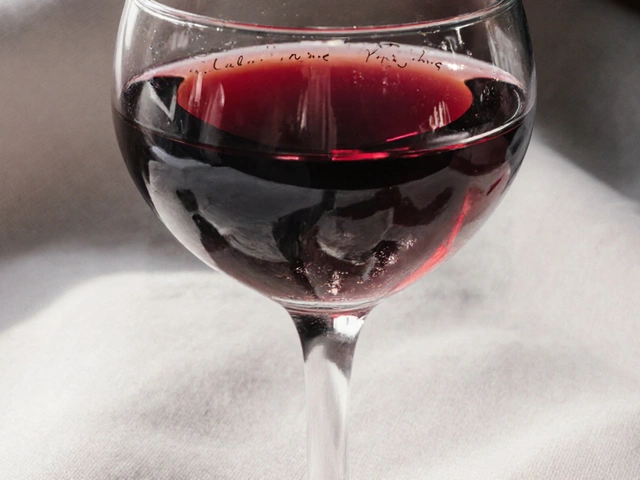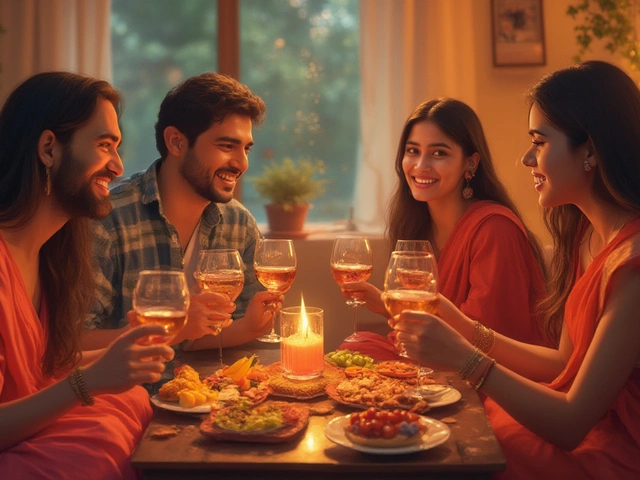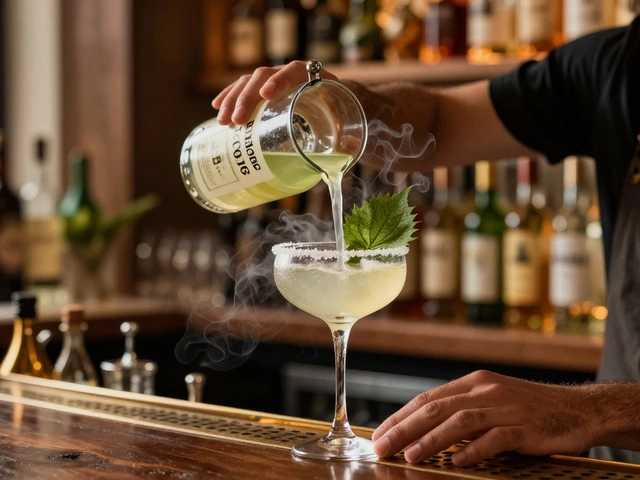
When you’re stressed, it’s easy to reach for a drink. A glass of wine after a long day. A beer to unwind after work. But what if you want to relax without alcohol? Maybe you’re cutting back, in recovery, or just tired of the crash that comes after the calm. The good news? You don’t need alcohol to feel at ease. There are real, science-backed ways to calm your nervous system, quiet your mind, and find peace-without a single drop of booze.
Progressive Muscle Relaxation: Tense and Release Your Way to Calm
This isn’t just stretching. It’s a precise, timed technique that tells your body it’s safe to relax. Start by tensing one muscle group for 15 seconds-like your jaw, clenching it tight-then release for 30 seconds. Notice the difference. The contrast is what rewires your brain. Move through your neck and shoulders, arms and fists, buttocks, thighs, calves, and feet. Do this sequence once a day for five days, and you’ll start to notice your body relaxing faster on its own. People in recovery say this is the technique that got them through their first sober holiday. No equipment. No cost. Just 10 minutes a day.Deep Breathing: Your Instant Reset Button
Your breath is always with you. That’s why deep breathing works even when you’re in a crowded office or stuck in traffic. Try this: inhale through your nose for 4 seconds, let your belly rise. Hold for 4 seconds. Then exhale slowly through your mouth for 6 seconds. Repeat five to ten times. That’s it. Studies show this pattern lowers cortisol, slows your heart rate, and signals your brain to switch from fight-or-flight to rest-and-digest. Longbranch Recovery Center found 82% of people using this technique reduced the intensity of cravings. It’s not magic-it’s biology. And you can do it anywhere, anytime.Move Your Body: Exercise as a Natural Antidepressant
You don’t need to run a marathon. Just 20 minutes of brisk walking three times a week can cut cortisol levels by nearly 28%, according to University of Georgia research. That’s more than a drink ever could-and without the rebound anxiety that kicks in an hour later. The key is consistency, not intensity. A daily walk around the block, dancing in your kitchen, or a 15-minute yoga flow counts. The ADAA calls it a natural antidepressant. In fact, for mild to moderate depression, regular movement works as well as medication for half of those who try it. And unlike alcohol, exercise builds resilience over time. It doesn’t numb you-it strengthens you.Herbal Teas and Non-Alcoholic Spirits: Ritual Without the Hangover
Ritual matters. If you used to pour a drink at 6 p.m., you still need a signal that the day is done. Chamomile tea, with its mild, floral sweetness, has been used for centuries to calm nerves. A single cup costs less than 50 cents. Lavender tea or passionflower infusion also work well. For those who miss the texture of a cocktail, non-alcoholic spirits like Aplós Calme offer a sophisticated sip. Made with hemp extract and adaptogens, it mimics the experience without the alcohol. But here’s the catch: it costs $32 a bottle. For many, that’s not sustainable. Herbal tea, on the other hand, is affordable, accessible, and backed by science. A 2020 study found a 2% lavender oil solution reduced anxiety in 83% of participants. You don’t need to buy a bottle to feel the effect-just steep a bag and breathe in the steam.
The STOP Technique: Pause Before You React
When stress hits fast-like a work email, a fight with a partner, or a craving-you don’t need to react. You need to pause. The STOP technique is simple: Stop. Take a breath. Observe what’s happening in your body and mind. Proceed with intention. Longbranch Recovery Center tested this in 2021 and found it was 87% effective at stopping impulsive reactions. It’s not about thinking harder. It’s about creating space between stimulus and response. Try it next time you feel the urge to reach for something to numb out. Stop. Breathe. Notice. Then choose.Yoga and Mindfulness: Long-Term Calm, Built Slowly
Yoga isn’t just bending over. It’s breath-led movement paired with focused awareness. Harvard Medical School found that after eight weeks of regular yoga, participants had 35% lower cortisol levels. That’s a measurable, lasting change. But it takes time. Unlike muscle relaxation or breathing, which work fast, yoga builds calm like a muscle. You won’t feel it on day two. But by week six, your body starts to remember how to rest. The downside? 51% of beginners quit within four weeks. If you’re new, start with 10 minutes a day. Use a free app or YouTube video. Don’t aim for perfection. Aim for presence.What Doesn’t Work-and Why
Not every alternative is right for everyone. Some people swear by hemp-infused drinks, but 37% of users in Aplos.world’s feedback said they didn’t feel the ritual was strong enough. Others try meditation apps and get frustrated when their mind won’t shut up. That’s normal. The brain doesn’t stop thinking because you want it to. The goal isn’t silence-it’s noticing without judging. And while non-alcoholic drinks are growing fast-projected to hit $30 billion by 2030-they’re not a cure-all. For people in early recovery, even the smell or taste of a mocktail can trigger cravings. Dr. Robert Doyle from Massachusetts General Hospital found 63% of early sobriety patients had increased relapse risk when using alcohol-like substitutes in the first 90 days. If you’re in recovery, stick to tea, breathing, or movement until you’re solidly grounded.
How to Start Today
You don’t need to do all of this at once. Pick one. Just one. Here’s how:- Set a daily alarm for 6 p.m. or whenever you usually reach for a drink.
- When it rings, do one of these: breathe for 2 minutes, tense and release your shoulders, or step outside for a 5-minute walk.
- Do it for seven days straight. No exceptions.
- After a week, add one more technique. Maybe tea. Maybe a 10-minute YouTube yoga video.
It’s not about being perfect. It’s about building a new habit-one that doesn’t cost you your health, your sleep, or your clarity.
Real People, Real Results
On Reddit’s r/stopdrinking community, 78% of users said exercise was their most helpful tool. One wrote: “The 15-30 second muscle tension/release technique from AlcoholHelp.com literally saved me during my first sober holiday season.” Another said: “I switched from wine to chamomile tea. It’s not glamorous, but it’s mine.”These aren’t stories of magic fixes. They’re stories of small, repeated choices. Of choosing calm over numbness. Of choosing presence over escape.
Final Thought: Calm Is a Skill, Not a Product
The wellness industry wants you to believe you need a $32 bottle, a $50 app, or a yoga retreat to feel at peace. But the truth is simpler. Calm is built through daily practice-not purchased. You already have everything you need: your breath, your body, your attention. You don’t need to replace alcohol. You need to replace the habit. And that starts with one slow breath. One tense-and-release. One walk in the fresh air. One quiet cup of tea. Do that, and you’ll find what alcohol never gave you: real, lasting peace.Can I use non-alcoholic drinks to relax instead of alcohol?
Yes, but with caution. Non-alcoholic drinks like herbal teas or hemp-infused spirits can replace the ritual of drinking, but they don’t fix the underlying need for stress relief. For people in early recovery, these drinks can trigger cravings. Herbal teas like chamomile or lavender are safer, cheaper, and just as effective. Save the expensive mocktails for special occasions.
How long does it take to feel the benefits of relaxing without alcohol?
It depends on the method. Deep breathing and progressive muscle relaxation work in minutes. Exercise shows noticeable mood improvements after 2-3 weeks of regular practice. Yoga and mindfulness take 6-8 weeks to rewire your brain’s stress response. The key is consistency, not speed. Don’t wait for a big change-look for small wins: sleeping better, feeling less jittery, or noticing you didn’t reach for a drink when stressed.
Is it possible to relax without any effort or practice?
No. Relaxation is a skill, not a product. Alcohol works because it chemically slows your nervous system-but it’s a shortcut that damages your body over time. True calm comes from training your nervous system to respond differently. That takes practice. But once you learn it, you don’t need anything else. Your breath, your body, and your attention are all you need.
What’s the cheapest way to relax without alcohol?
Breathing and walking. Both cost nothing. A cup of chamomile tea costs less than 50 cents. Progressive muscle relaxation requires no equipment. You don’t need a gym membership, an app subscription, or a fancy bottle. The most effective tools are the ones you already have: your lungs, your muscles, and your ability to pause.
Why do I feel worse when I stop drinking, even if I’m not addicted?
Alcohol temporarily lowers anxiety by depressing your nervous system. When you stop, your brain goes into overdrive trying to rebalance. This is called rebound anxiety. It’s normal, and it usually fades within 1-3 weeks. The solution isn’t to go back to drinking-it’s to replace the alcohol with real stress-relief tools like breathing, movement, or muscle relaxation. These tools teach your body how to calm itself without chemicals.





Categories